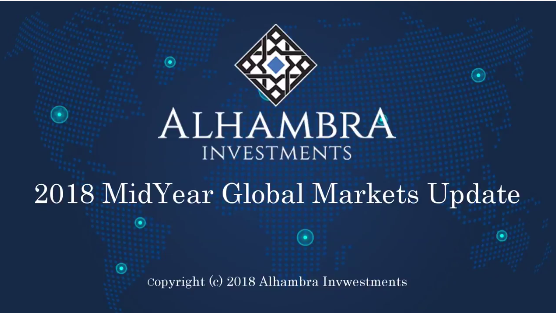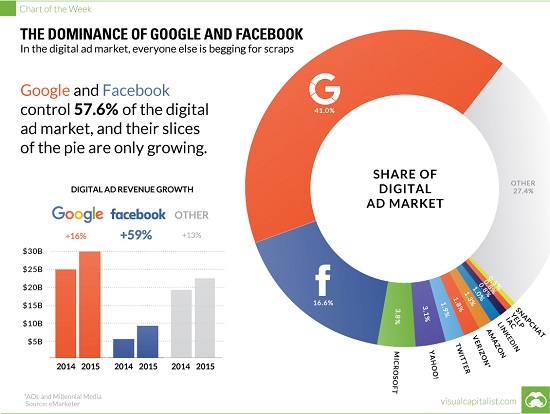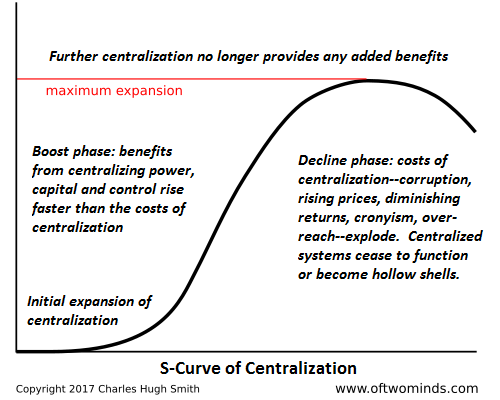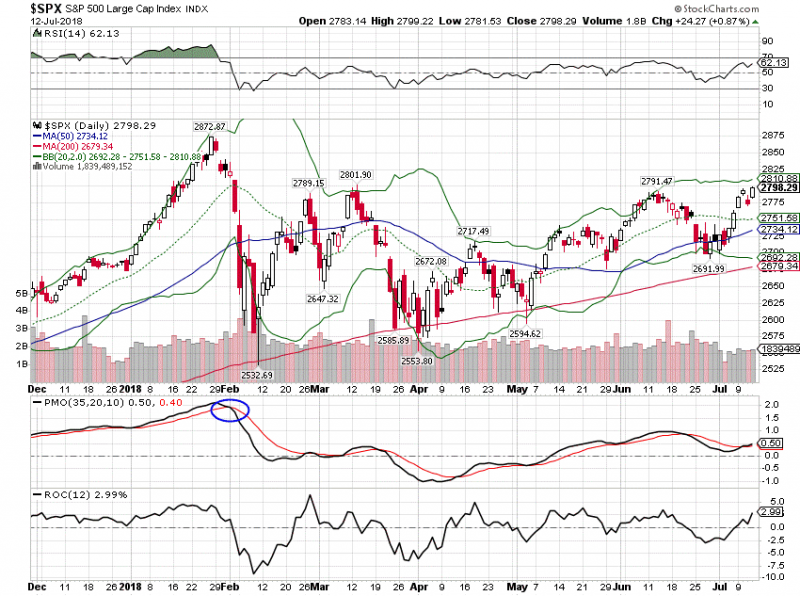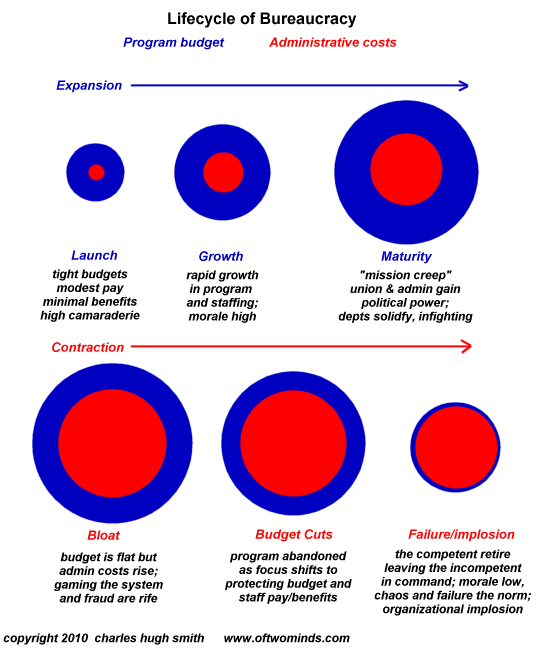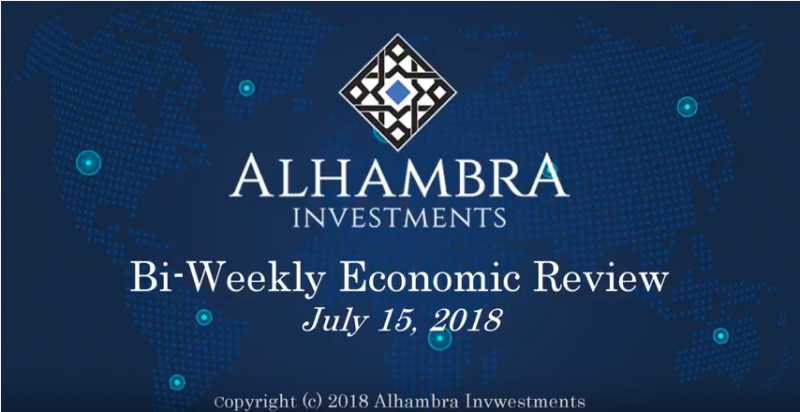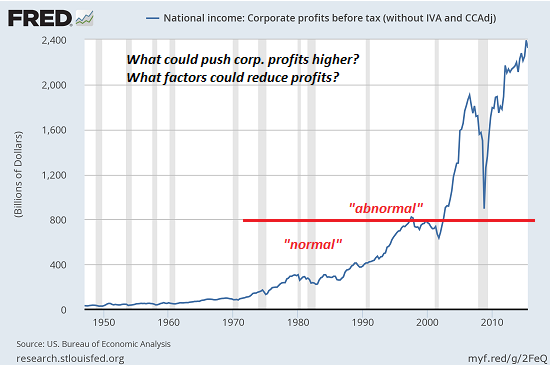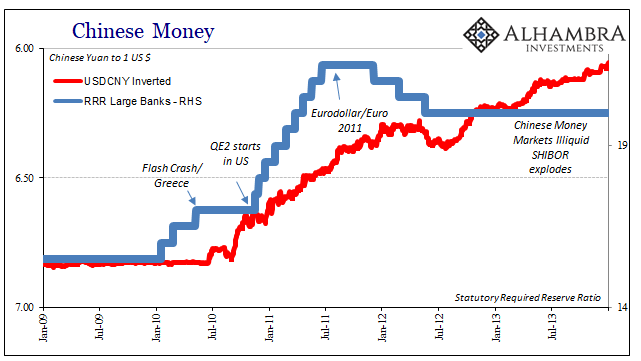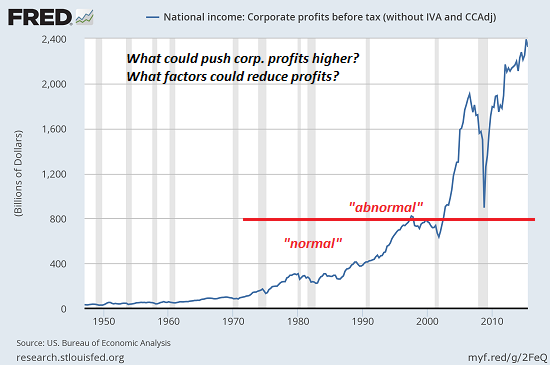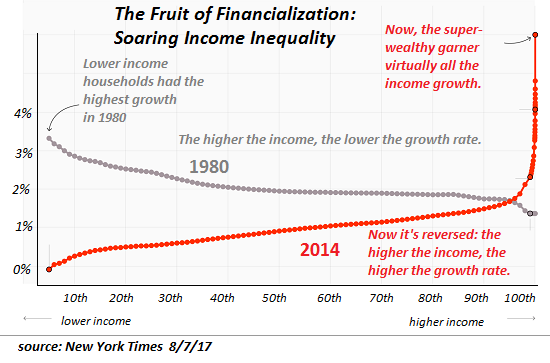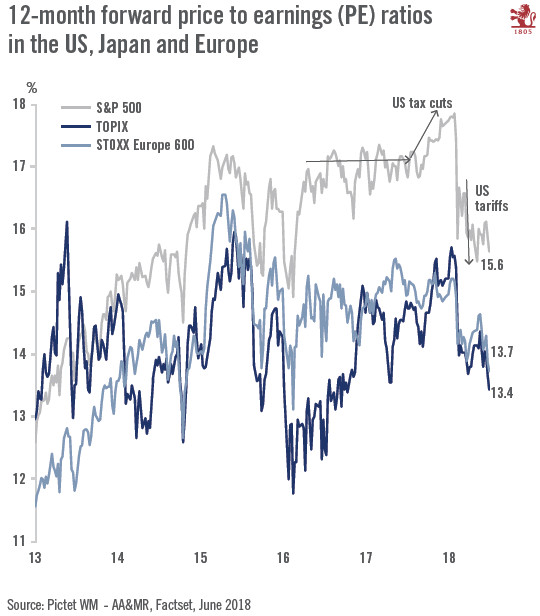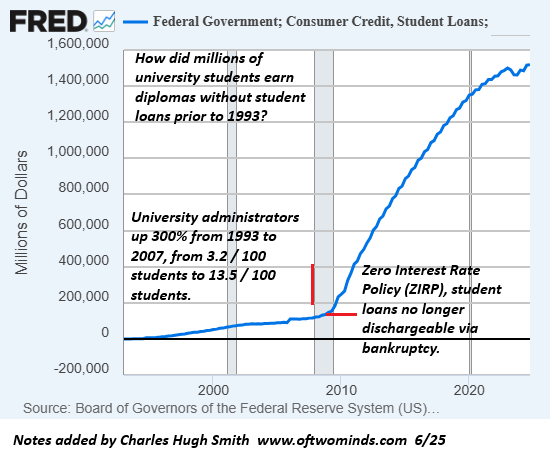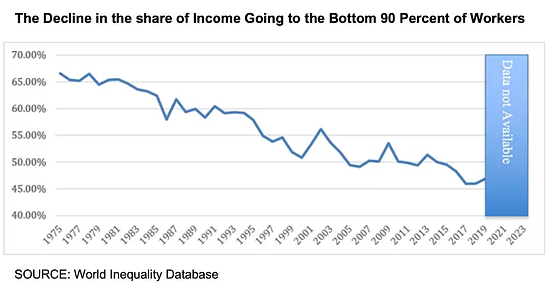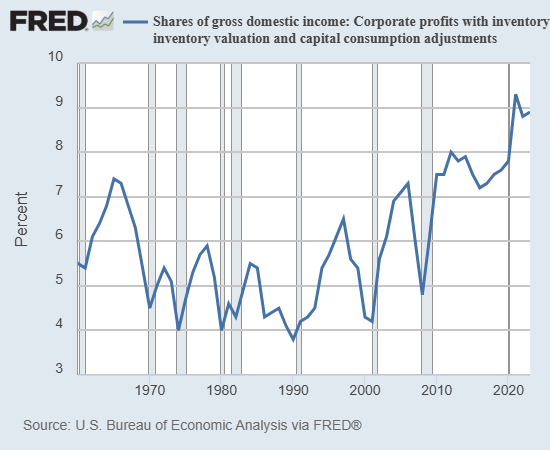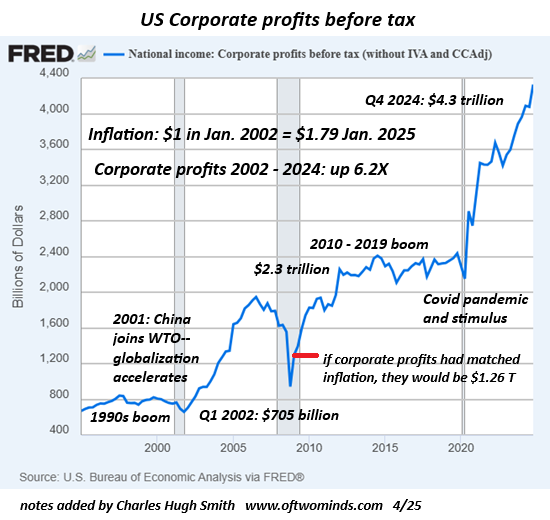Category Archive: 5) Global Macro

Are wildfires becoming more deadly? | The Economist
Wildfires have killed at least 74 people in Greece. In Sweden firefighters are tackling the biggest forest blazes in the country’s history. What causes wildfires and are they becoming more common? Click here to subscribe to The Economist on YouTube: https://econ.st/2xvTKdy Last year in America, around 71,000 fires burned through an area larger than that …
Read More »
Read More »
The Imperial Naivete of the American Public
The nation's premier corporate profit engines / social media giants are the ideal platforms for undermining the U.S. via the sowing of disintegration. Whether it's stated or not, one source of the inchoate outrage triggered by Russian-sourced purchases of adverts on Facebook in 2016 (i.e. "meddling in our election") is the sense that the U.S. is sacrosanct due to our innate moral goodness and our Imperial Project.
Read More »
Read More »
Emerging Markets: Week Ahead Preview
EM FX saw some violent swings last week, due in large part to some unhelpful official comments Friday. BRL and TRY were the best performers last week, while RUB and CLP were the worst. When all is said and done, however, we think Fed policy remains unaffected and so we remain negative on EM FX. Also, global trade tensions remain high after Trump threatened tariffs on all Chinese imports entering the US.
Read More »
Read More »
Solutions without Historical Templates: Cryptocurrencies and Blockchains
Crypto-blockchain technologies are leveraging the potential of computers and the web for direct political-social innovation. We're accustomed to three basic templates for system-wide solutions or improvements: 1. an individual "builds a better mousetrap" and starts a company to exploit this competitive advantage;
Read More »
Read More »
Tony Blair on Brexit’s second referendum | The Economist Podcast
Tony Blair, Britain’s former Prime Minister, spoke to Anne McElvoy, The Economist’s head of radio, for The Economist asks podcast. Timecoded chapters listed below: Chapter One – Should there be a second Brexit referendum? 3:00 – What would be the route to a second referendum? 5:40 – Did Cameron get it wrong to hold a …
Read More »
Read More »
Bi-Weekly Economic Review
This will be a fairly quick update as I just posted a Mid-Year Review yesterday that covers a lot of the same ground. There were, as you’ll see below, some fairly positive reports since the last update but the markets are not responding to the better data. Markets seem to be more focused on the trade wars and the potential fallout. I would also note that at least some of the recent strength in the data is related to the tariffs.
Read More »
Read More »
Are identity politics dangerous? | The Economist
Some fear that politics based on protecting race, religion or other minority groups can threaten the rights of others. How did identity politics emerge and has it gone too far? Click here to subscribe to The Economist on YouTube: https://econ.st/2xvTKdy Daily Watch: mind-stretching short films throughout the working week. For more from Economist Films visit: …
Read More »
Read More »
Mid-Year Global Markets Update
Volatility returned to markets with a vengeance in the first half of this year. 2018 started off as an extension of last year when volatility was almost wholly absent. Stocks roared out of the starting gate, up almost every day until January 26th. And then – whoosh. What took nearly a month to gain took just 6 trading days to give back and then some.
Read More »
Read More »
Putin’s Russia and the ghost of the Romanovs | The Economist
Tsar Nicholas II of Russia and his family, the Romanovs, were murdered 100 years ago today by Marxist revolutionaries. What does this anniversary mean for Vladmir Putin? Click here to subscribe to The Economist on YouTube: https://econ.st/2xvTKdy Daily Watch: mind-stretching short films throughout the working week. For more from Economist Films visit: https://econ.st/2zOWMe0 Check out …
Read More »
Read More »
Our Institutions Are Failing
Our institutional failure reminds me of the phantom legions of Rome's final days. The mainstream media and its well-paid army of "authorities" / pundits would have us believe the decline in our collective trust in our institutions is the result of fake news, i.e. false narratives and data presented as factual.
Read More »
Read More »
Buybacks Get All The Macro Hate, But What About Dividends?
When it comes to the stock market and the corporate cash flow condition, our attention is usually drawn to stock repurchases. With good reason. These controversial uses of scarce internal funds are traditionally argued along the lines of management teams identifying and correcting undervalued shares. History shows, conclusively, that hasn’t really been true.
Read More »
Read More »
Can Ramaphosa deliver Mandela’s dream? | The Economist
Nelson Mandela publicly backed Cyril Ramaphosa as his political successor. Twenty years later Mr Ramaphosa has finally become president. But can he deliver Mandela’s dream of a fairer South Africa? Daily Watch: mind-stretching short films throughout the working week. For more from Economist Films visit: https://econ.st/2upgjvH Check out The Economist’s full video catalogue: http://econ.st/20IehQk Like …
Read More »
Read More »
Will AI “Change the World” Or Simply Boost Profits?
The real battle isn't between a cartoonish vision or a dystopian nightmare--it's between decentralized ownership and control of these technologies and centralized ownership and control. The hype about artificial intelligence (AI) and its cousins Big Data and Machine Learning is ubiquitous, and largely unexamined. AI is going to change the world by freeing humankind from most of its labors, etc. etc. etc.
Read More »
Read More »
China’s Seven Years Disinflation
In early 2011, Chinese consumer prices were soaring. Despite an official government mandate for 3% CPI growth, the country’s main price measure started out the year close to 5% and by June was moving toward 7%. It seemed fitting for the time, no matter how uncomfortable it made PBOC officials. China was going to be growing rapidly even if the rest of the world couldn’t.
Read More »
Read More »
Women and the Saudi revolution | The Economist
Saudi Arabia is one of the most conservative countries in the world. But a social revolution has begun. The Economist’s editor, Zanny Minton Beddoes takes a road-trip around Riyadh to examine what a more moderate Saudi would mean for its women, and the rest of the world. Click here to subscribe to The Economist on …
Read More »
Read More »
We Are All Hostages of Corporate Profits
We're in the endgame of financialization and globalization, and it won't be pretty for all the hostages of corporate profits. Though you won't read about it in the mainstream corporate media, the nation is now hostage to outsized corporate profits. The economy and society at large are now totally dependent on soaring corporate profits and the speculative bubbles they fuel, and this renders us all hostages: Make a move to limit corporate profits or...
Read More »
Read More »
The USA Is Now a 3rd World Nation
I know it hurts, but the reality is painfully obvious: the USA is now a 3rd World nation. Dividing the Earth's nations into 1st, 2nd and 3rd world has fallen out of favor;apparently it offended sensibilities. It has been replaced by the politically correct developed and developing nations, a terminology which suggests all developing nations are on the pathway to developed-nation status.
Read More »
Read More »
House View, July 2018
On a tactical, rolling three-to-six-month basis, we are tilting away from a bullish to a neutral stance on developed-market equities as trade and political frictions are rising. That said, we remain more upbeat on their prospects after the summer.
Read More »
Read More »









